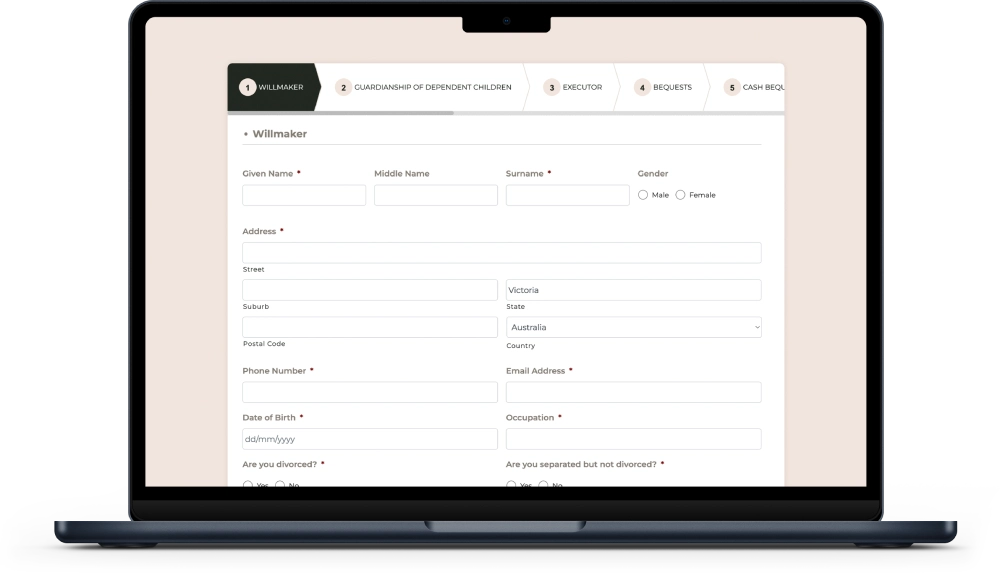Who will make decisions on your behalf
if you are unable to?
A power of attorney or the appointment of a medical treatment decision maker is a written legal document
which allows another person to act and make decisions on your behalf. The types of decisions that
person can make will depend on the type of power or appointment given by you.
Create an
online will
Use our new online tool to create fast, convenient online wills and powers of attorney in 3 easy steps to help protect your loved ones.

Do I need a to appoint an attorney or medical treatment decision maker?
It is recommended that everyone over the age of 18 considers making powers of attorney and appointing medical treatment decision makers. They are invaluable tools in managing and controlling your affairs, both financial and non-financial, on an ongoing basis.
Our lawyers can guide you through the process of determining which powers are right for you, and who you ought to appoint to these important roles.

What are the different types of Power of Attorney?
In Victoria, there are three types of appointments available for people who can make decisions on your behalf.
General Power
of Attorney
Enduring Power
of Attorney
Appointment of a medical treatment decision maker
Our guide "Explaining the types of powers of attorney in Victoria" includes an explanation of the different types.

Can I revoke my power of attorney or appointment of a medical treatment decision maker?
You can revoke an appointment at any time while you have the capacity to do so by signing a simple revocation form.
What if there is a dispute?
The Victorian Civil and Administrative Tribunal (VCAT) has the power to make decisions relating to powers of attorney and the appointment of a medical treatment decision maker, including suspending, varying or revoking them.
Our team of lawyers can help you to resolve the dispute as quickly and cost-effectively as possible.
Contact our Power of Attorney Lawyer.
Our Wills & Estates lawyers have significant experience drafting simple and complex Power of Attorney documentation for individuals and couples.
Carol Havelos.
Legal Clerk.
- Wills, Estate& Probate
- 03 9890 3321
- Email Address: c.havelos@robinsongill.com.au
Jaymee Wilson.
Legal Clerk.
- Wills, Estate & Probate
- 03 9890 3321
- Email Address: j.wilson@robinsongill.com.au
You may also want to consider:
If your life circumstances have changed, it can be a good time to obtain or update your Power of Attorney.
Examples of life changes include:
- A relationship breakdown or divorce (yours or your children)
- The marriage of a child/grandchild
- Being diagnosed with a medical condition or have suffered a major injury
- Recently changed a trust or will or have created or changed other estate planning documents
- A significant change in your personal wealth or assets (e.g. sale of a business, inheritance, etc.)
Resources & FAQs
Answers to common questions in
relation to the expertise.
Medical Enduring Power of Attorney
An enduring power of attorney (medical treatment) is a document whereby you appoint someone (your medical agent) to make decisions regarding your medical treatment when you are unable to decide for yourself.







